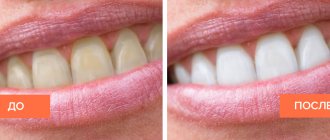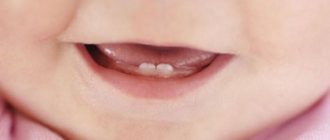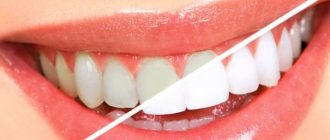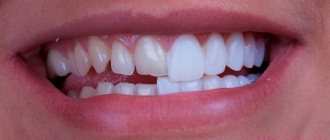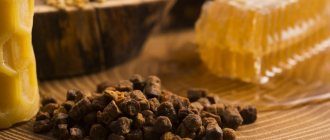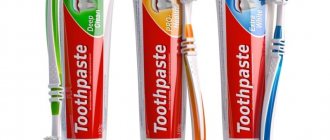Our food is a supplier of nutrients that are used for cell growth and development. If there is a lack of any vitamins and minerals, then the normal state of the body begins to suffer. Teeth are no exception. With an incorrect and unbalanced diet, they can begin to break down. On the one hand, this is due to the weakening of protective barriers, and on the other, to direct damage to the structure. How to eat right to maintain and increase the health of the dental system?
What foods are good for teeth?
Comparing teeth with other organs, it becomes obvious that in its composition, dental dentin - the main hard tissue - is closest to bone. The strength of bones is ensured by the presence of mineral salts, the main of which are calcium and phosphorus.
Thus, healthy food for teeth must contain these substances. The child's diet should include:
- hard cheese, 100 g of which contains a whole gram of calcium salts;
- cottage cheese;
- milk - the daily calcium requirement is provided by a liter of whole natural milk;
- dairy products;
- cabbage;
- fish;
- seafood;
- whole grain wheat flour;
- nuts;
- dill;
- spinach;
- basil;
- soy products.
Calcium and phosphorus are not absorbed in the small intestine without vitamin D, which can be obtained by introducing eggs, liver, salmon fish, etc. into the diet.
It is recommended to observe the daily norms of calcium in food, which for preschoolers are 0.8 g, adolescents - 1.3 g, pregnant and lactating women - 2 g (this is enough to cover your own needs and spend on the formation of the child’s skeletal system).
What vegetables are essential for dental health?
Both fresh and boiled vegetables are necessary for dental health. In mostly fresh form, to maintain healthy teeth and gums, it is recommended:
- carrots - like apples, cleans teeth and massages gums, and also contains vitamin A and is a rich source of keratin, which has a positive effect on the oral mucosa and gums;
- celery - eliminates plaque, helps protect teeth and gums from pathogenic microorganisms, provides a beneficial massage of the gums, promotes natural teeth whitening, due to the fact that saliva is actively released when chewing it;
- broccoli – forms a film on the surface of the enamel that protects against the destructive effects of acids;
- white and other types of cabbage are rich in calcium, necessary for strong teeth;
- pumpkin (fresh and in dishes) – contains selenium, due to which it is able to restore whiteness to teeth. In addition, the vegetable provides general improvement to the oral cavity, saturates the tissues with fluoride and zinc;
- beets – provides essential magnesium;
- leafy vegetables - contain organic calcium, as well as other components that have a beneficial effect on strengthening blood vessels, which helps reduce the risk of bleeding gums. Juices prepared from leafy vegetables whiten enamel and give a long-lasting feeling of freshness, allowing you to effectively combat bad breath.
Boiled potatoes are also good for oral tissues. It helps replenish fluoride deficiency.
Products good for teeth and gums
Healthy and harmful foods for a child’s teeth often coexist in his daily menu. Helps flush calcium salts out of the body:
- sweets;
- carbonated drinks;
- coffee.
The consumption of these products in childhood should be limited.
Preference should be given to black tea, preferably unsweetened. It contains catechins, which block the excessive growth of pathogenic microflora in the mouth.
Dark chocolate without additives also has protective and anti-inflammatory properties.
Beekeeping products - honey, propolis, beebread, honeycomb - have a pronounced disinfecting effect. By destroying pathogens, they protect tooth enamel from destruction and prevent gum inflammation.
Mechanical cleaning of enamel and gums from plaque during meals is of great importance. In order to clean your teeth and give your gums a good massage to improve blood supply, you need to regularly give your children solid food:
- raw carrots, which are also a source of provitamin A;
- fresh and pickled cabbage;
- beets;
- pumpkin;
- turnip;
- radish;
- apples.
TOP 10 products for healthy and beautiful teeth
TOP 10 products for healthy and beautiful teeth
1. Hard vegetables and fruits (carrots, apples, cucumbers, beets) Carrots, apples, cucumbers and beets contain many vitamins and microelements that are beneficial for teeth and gums, such as beta-carotene, vitamins B, D, E, K, C, PP, calcium, potassium, magnesium, sodium, phosphorus, iodine, fluorine, iron, cobalt and silver, which normalize blood circulation in the gums and supply calcium and phosphorus necessary for healthy teeth. Our teeth and gums become accustomed to soft, processed foods and stop functioning normally, resulting in plaque and poor circulation. Just a couple of hard vegetables or fruits a day - and your gums will be provided with a good massage, and your teeth will be free of deposits. In addition, such vegetables stimulate the secretion of saliva, which constantly washes the oral cavity and reduces the number of germs and bacteria.
2. Greens (parsley, lettuce, onion, dill, celery)
The composition of greens includes important not only for teeth, but also for the whole body as a whole, vitamins B, E, A, C, PP, potassium, calcium, magnesium, iodine, sodium, phosphorus, iron, beta-carotene and folic acid. Greens strengthen not only teeth, but also the immune system in general, help strengthen blood vessels, improve blood formation processes and eliminate bleeding from the gums. Parsley and onion have a natural antibacterial, refreshing and odor-eliminating effect, their juice penetrates into hard-to-reach places, whitens teeth, removes plaque, strengthens and massages gums.
3. Berries (currants, grapes, strawberries, cranberries)
The berries are rich in a unique combination of organic acids, pigments and pectins, and contain vitamins PP, A, group B, C, E, H, beta-carotene, calcium, magnesium, sodium, potassium, phosphorus, iron, iodine and fluorine. The juice of some berries is recommended to be used to prevent caries. For example, cranberry juice, due to its bactericidal effect, reduces the likelihood of caries. It is believed that the components of berry juices block bacteria from accessing tooth enamel. Grapes can also be used in the prevention of caries, because it contains a whole complex of minerals and trace elements that have a beneficial effect on teeth and gums. In addition, grapes contain substances that block the activity of pathogenic microbes in the oral cavity.
4. Nuts (almonds, pine nuts, cashews)
Nuts contain all essential amino acids, polyunsaturated fatty acids, vitamins A, B, C, D, E, P, as well as potassium, calcium, magnesium, phosphorus and other mineral elements that determine their high nutritional value. In addition, cashew nuts contain a unique substance that can destroy bacteria that destroy tooth enamel. It has antibacterial, antiseptic, tonic properties, and relieves toothache. Pine nuts contain vanadium, which promotes the development of bone tissue, phosphorus, which is involved in the formation and preservation of teeth and bones and plays an important role in the activity of muscles and nerve cells, calcium, which is the main component of bones and teeth and is necessary for blood clotting, cell integrity and cardiac activity. Almonds contain substances that improve the condition of teeth and gums; in addition, they have analgesic and antispasmodic effects.
5.Dairy products (cheese, cottage cheese, yogurt)
In addition to calcium, potassium, magnesium and vitamins A, B and D, which are beneficial for our body as a whole, dairy products also have a certain effect on teeth. Thus, yogurt reduces the amount of hydrogen sulfide, which is the main factor causing bad breath, quickly raises the pH level, and phosphates, calcium and casein help mineralize teeth. Cheese can be considered an effective means of preventing caries, because it increases the concentration of calcium in tooth enamel by 60% and increases the volume of saliva, which contains components that prevent the development of caries and gum inflammation. Cottage cheese contains proteins, lactic acid, iron and magnesium. It is well absorbed by the body, and the calcium and phosphorus salts that make up it are involved in the formation of bone tissue, nutrition of the nervous system and the formation of hemoglobin in the blood.
6. Citrus fruits (grapefruit, lime, orange) Citrus fruits necessarily include potassium, calcium, magnesium, sodium, phosphorus, iron, vitamins B, E, C, PP, which are so necessary for the body. Citrus aromas not only tone you up, lift your spirits, reduce drowsiness and increase attention and productivity, but also have a beneficial effect on teeth and gums. For example, eating grapefruit daily reduces bleeding gums and reduces the risk of inflammatory diseases of the oral cavity, and gum disease is the main cause of tooth loss. It is also recommended to eat lime, which helps prevent tooth decay and contains many substances beneficial for teeth and gums. Calcium and phosphorus contained in lime help enamel resist pathogens and caries, and gums improve the functioning of blood vessels and prevent bleeding. At the same time, lime contains organic acids, which, while having a slight whitening effect, do not corrode the enamel and do not destroy the natural microflora of the teeth and oral cavity. Contained in huge quantities of vitamin C in oranges, it maintains a healthy collagen network in the gums, which prevents the development of many dental ailments by destroying bacteria that cause tooth decay and gum inflammation.
7. Seafood (fish, shrimp)
From a nutritional point of view, seafood is considered an almost ideal food, because it is rich in microelements and vitamins, primarily calcium, phosphorus, fluorine, vitamins B1 and D, the insufficient presence of which leads to fragility of bone tissue, diseases of teeth and gums. These elements strengthen the health of the gums and promote the proper formation of teeth, improve complexion and hair health, and help the body strengthen the immune system. Shrimp contains calcium, thiamine, riboflavin, sodium, potassium, magnesium, phosphorus, iron and manganese that are easily absorbed by the body. The high content of calcium and fluoride affects the prevention of diseases of teeth and gums, because these minerals serve as a source for the construction of bones, the growth and preservation of teeth, the prevention of plaque formation and enamel destruction. Almost every type of fish is rich in calcium, selenium and fluorine, but the most valued is sea fish and other seafood, which, due to their high content of iodine and calcium, provide anti-caries protection for teeth.
8. Eggs (chicken, quail) A chicken egg contains proteins, fats, carbohydrates, 12 essential vitamins and almost all microelements. The vitamin D it contains is a source of phosphorus and helps prevent tooth decay, and eggshells are an ideal source of calcium, which is easily absorbed by the body, while medications such as calcium chloride, gypsum and chalk are poorly absorbed. By consuming crushed quail egg shells, you can get rid of bleeding gums and make your teeth strong and healthy.
9. Honey
Everyone knows that honey is good for health; it is not only a powerful source of energy and a means of boosting immunity, but also has a positive effect on dental health. Honey is especially rich in vitamins B and C, honey has antibacterial properties, has a general strengthening and rejuvenating effect on the body, and chewing wax honeycombs helps clean teeth and disinfect the oral cavity, effectively treats stomatitis and inflammation of mucous tissues. Propolis is used to treat periodontal disease, dental caries and gum inflammation; according to scientists, it reduces the number of enzymes that help bacteria attach to the tooth surface. In addition, about a hundred elements have been found in propolis that provide dental protection.
10. Drinks (tea, water) Both black and green tea are very beneficial for teeth, due to the content of substances that stop the development of bacteria. The antioxidant catechin, which is part of the tea, kills bacteria that cause caries and bad breath, which means that by drinking a cup of tea after a meal, we freshen our breath and cleanse the oral cavity of bacteria, thereby protecting the gums and strengthening the teeth. Clean drinking water enriched with fluoride also has a positive effect on dental health. Fluoridated water strengthens tooth enamel and prevents the occurrence of caries, inhibits the formation and accumulation of soft plaque, suppresses the vital activity of microorganisms, which leads to a decrease in the accumulation of organic acids in the oral cavity. All these products will have a positive effect not only on your teeth, but also on the entire body as a whole. By consuming them daily, you saturate your body with vitamins and minerals that are good for your health. When your teeth and gums become strong and healthy, you will want to smile more often, which means a good mood and smiles in return are guaranteed!
Products good for teeth and enamel
Fruits and berries saturate the body with vitamins that play an important role in metabolism. Strawberries, pineapples and citrus fruits additionally help whiten enamel.
However, after eating citrus fruits, you should rinse your mouth with water. This is necessary to neutralize organic acids that weaken the pellicle (protective film) on the enamel.
There is no need to teach children to chew crackers, much less seeds and nuts in shells. The benefits from such consumption of products will be less than the harm to the enamel, which becomes covered with microcracks over time.
Products that are harmful
What is good for your teeth is good for your entire body. Poor nutrition causes physical and psychological problems. Oral diseases lead to a decrease in overall immunity. And with pain or active inflammation, it will be difficult to eat and communicate.
So, harmful foods for teeth are:
- Sweets. This includes chocolate, cakes, cookies, candies. The sugar contained in these products settles on the enamel and subsequently destroys it. Also, crowns and fillings placed on teeth wear out faster. The worst are those sweets that are difficult to clean out of the mouth, like candy or caramel. Small pieces of caramel get stuck between teeth. This is significantly worse than, for example, chocolate, which easily washes out when brushing or rinsing.
- Soft drinks. Store-bought soda and iced tea contain equal amounts of harmful sugars, which erode tooth enamel and lead to tooth decay. It is better to give up such drinks and switch to water or unsweetened loose leaf tea. If it is difficult to give up carbonated sweet drinks, then after each use you should rinse your mouth with warm water.
- Hard and starchy foods. These are crackers, chips, popcorn, nuts and dried fruits. They not only get stuck between the teeth, but also scratch the enamel and gums. Scratches turn into small cracks. Food will get stuck there, which will lead to inflammatory processes.
- Sour. Citrus fruits and juices from them, lemon and berries - all this harms teeth. High acid content is harmful to oral health. It is worth limiting the consumption of foods with high acidity. It is advisable to drink juices through a straw - contact with the enamel will be significantly reduced, along with the risk of undesirable consequences.
- Coloring products. Black currants and chokeberries strongly stain tooth enamel. But these berries also contain vitamins that are good for teeth. So you can eat them, but you shouldn’t overuse them. The second product is coffee. It is not only capable of staining the enamel dark, but also leaching calcium from the enamel. Therefore, it is better to reduce coffee to 1 cup per day or, if possible, completely abandon it. Professional teeth whitening will give longer lasting results if you follow a “white” diet.
When to start prevention
You should think about the condition of your child’s teeth from the first months of pregnancy. Women need to remember that the baby’s skeleton and dental system are formed in the early stages. Therefore, a pregnant woman is recommended to consume foods that are good for teeth and bones in accordance with increased standards.
Specialists at the Shifa clinic will provide patients with detailed information about which products are good for children’s teeth. Dentists conduct preventive examinations and dental treatment for pregnant women. At the same time, they place special emphasis on prevention and analyze the diet in detail to find out whether it contains healthy foods for teeth in sufficient quantities. This approach allows you to keep a pregnant woman’s teeth healthy, and also contributes to the formation of healthy teeth in children.
Regular dental check-ups will help avoid many dental problems.
The Importance of Nuts and Seeds for Oral Health
Nut kernels and seeds of various plants contain a high concentration of substances that are beneficial for healthy teeth and gums. That is why it is extremely important to add these products to the daily diet of both adults and children. But, it should be remembered that each type of nuts and seeds has its own unique composition and, accordingly, has a certain positive effect. For example:
- pine nuts – promote the development of dental bone tissue, contain a lot of magnesium;
- sesame – helps remove plaque, saturates tooth tissue with calcium, thereby maintaining the strength of the enamel;
- peanuts, pumpkin seeds - rich in zinc, etc.
In order for the body to receive the maximum list of necessary substances, it is advisable to alternate pine and walnuts, cashews, Brazil nuts, hazelnuts, sunflower seeds, sesame seeds, pumpkin seeds, flax seeds and others in the diet. Seeds and nuts must be fresh, not roasted. Also, you should remember that cracking nuts and cracking seeds with your teeth is extremely dangerous. It is better to purchase already cleaned kernels, or use appropriate devices to clean them.
How to eat properly to avoid caries?
To reduce the risk of dental caries, you need to adjust your diet in accordance with the following recommendations:
- Limit foods that cause caries in your diet, in particular, minimize the consumption of fast carbohydrates and sugars.
- Rinse your mouth or brush your teeth after every meal. For rinsing, you can use water or special solutions.
- You should not eat sweets between main meals, so that sugar does not remain on your teeth - a breeding ground for microbes.
- Add more solid and fibrous foods (fresh vegetables, fruits) to your diet, which will cleanse the enamel of soft plaque and remove food debris.
- Eat food at a comfortable temperature (neither hot nor cold).
- There are foods high in fluoride, calcium, phosphorus, and vitamin D that are good for teeth.
- Chew food well and for a long time, because chewing produces saliva, which has a bactericidal effect and destroys the cell walls of bacteria.
How to choose healthy dairy products
To ensure that purchased dairy products only bring benefits, you need to follow a few simple rules.
- Study the information on the packaging: check the expiration date and compliance of the stated storage conditions with those provided by the retail outlet.
- Do not buy milk and dairy products secondhand from random sellers without appropriate declarations and certificates of conformity.
- In case of doubt about the quality of the goods, supporting documents should be required - they must be provided to the buyer.
- When choosing sour cream, you need to pay attention to the name so as not to buy a sour cream product based on vegetable fats.
- The previous advice also applies to cheese: it is necessary to distinguish between the names “cheese” and “cheese product”. In the second case, a substitute is used instead of part of the milk fat.
- You should choose yoghurts with a minimum shelf life and the shortest composition [6].
Consume high-quality dairy products in the required quantities, and your teeth will remain strong and healthy throughout your life.
Don't like teeth
- sticky sweets that stick to the teeth and spoil not only healthy, but also cured teeth;
- Sugar-rich foods - when combined with saliva, they release harmful acids that contribute to the destruction of tooth enamel. If you have a sweet tooth, eat sugary foods infrequently and try to brush your teeth immediately after such a dessert meal;
- liver and chips - due to slow dissolution in the mouth, such products have an even more negative effect on the enamel and provoke dental caries and other dental problems;
- neglect of hard and rough foods - constant eating of foods and dishes of a soft consistency provokes the formation of tartar and, as a result, other enamel lesions;
- sudden changes in temperature - do not wash down ice cream with hot coffee, or boiling broth with ice water. Due to sudden changes in temperature, enamel becomes brittle and susceptible to damage.
- nuts in shell - do not chew nuts and other hard objects with your teeth; for this there are special tongs, scissors and other tools that are not dangerous for dental treatment;
- bananas and raisins - these products adversely affect the microflora in the oral cavity, so do not overuse them or rinse your mouth after meals;
- smoking – tobacco spoils the color of teeth and reduces immunity, which leads to more frequent diseases of the oral cavity and the whole body;
- citric acid in drinks and food;
- cleaning with third-party devices – contact of teeth with metal products, especially not sterile ones, is contraindicated. Therefore, stop removing food debris from your teeth with a needle and other improvised objects - buy normal toothpicks or dental floss for safe oral hygiene;
- Teeth whitening – this procedure not only improves the color of the enamel, but also injures it. Therefore, it is not recommended to undergo this procedure more than once every six months;
- lack of fluoride and calcium - with a lack of these microelements, the condition of the teeth seriously worsens. Calcium can be bought at the pharmacy in the form of tablets and taken independently, while fluoridation of teeth and the use of fluoride paste are prescribed by a doctor.
What else is important to eat for healthy teeth and gums?
We should not forget about such products as:
- buckwheat – rich in zinc and fluorine;
- eggs (chicken and quail) are high in vitamin D and also contain phosphorus, vitamin A and other vitamins and minerals;
- honey – contains enzymes that destroy pathogenic microflora;
- kelp (seaweed) and other algae - provide a relatively large amount of iodine, which is involved in metabolic processes.
As you can see, quite ordinary, affordable foods that form the basis of the daily diet of most families are beneficial for the health of teeth and gums. The main task is to regularly include them in your diet and not forget about variety.
Other caries prevention measures
A healthy and balanced diet is of great importance in preventing the development of dental caries. However, you should not expect that giving up some foods and eating others can completely get rid of dental caries. An integrated approach is important in the fight against cariogenic bacteria and the prevention of caries. After adjusting your diet, also pay attention to the following points:
- Brush your teeth regularly with a properly selected brush and paste, use floss, dental floss or irrigators to remove food debris from hard-to-reach areas and interdental spaces.
- Visit your dentist twice a year for preventative purposes, even if you have no symptoms of caries and no signs of oral discomfort.
- When caries appears, treat it at an early stage, without delaying the process to a deep stage or pulpitis.
- Regularly visit a hygienist for professional teeth cleaning - special equipment will help remove complex plaque from the surface of the teeth, which is difficult to remove with manual brushing.
Compliance with these simple preventive measures plus nutritional correction towards a healthy and balanced diet will allow you to maintain healthy teeth for a long time and prevent the development of caries.
